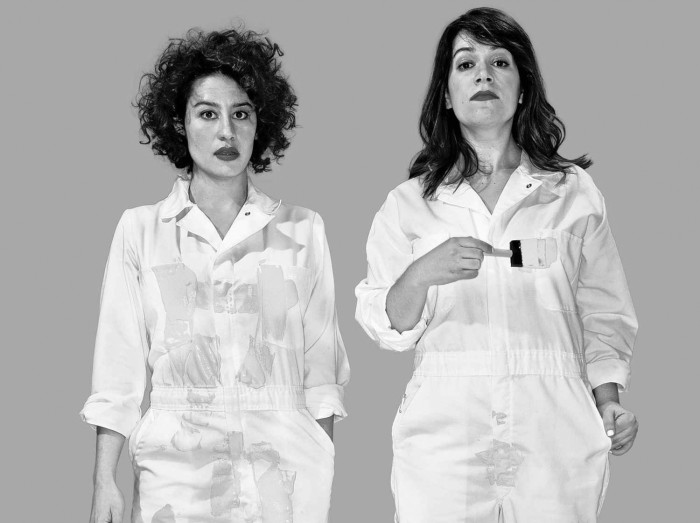A new saying has been circulating among my friends after a failed night out or an especially quirky encounter with a stranger: Having a ‘Broad City moment.' This connotes a mantra, a lifestyle—a way to bask in the sheer ridiculousness that is everyday life as a young ‘adult.’
The description is inspired by Comedy Central’s hit television show, Broad City, which returned for its third season this February. Created by Ilana Glazer and Abbi Jacobson, the show depicts them as heightened versions of themselves. Ilana is an open-minded pothead who is more concerned with sexually exploring every race, gender, and size, rather than her job as a sales agent for a company called Deals, Deals, Deals. Abbi is an awkward fine arts graduate, who works during the day as a cleaner at a luxury gym called Soulstice (pronounced Soul-steece), while also trying to make it as an illustrator. On paper it could seem as if the show is a classic comedy duo where Abbi is the ‘straight man’ who sets up jokes for the eccentric Ilana. In reality, both characters hold their own in terms of respective unique, weird, and funny attributes and habits. Abbi, for example, becomes ‘all caps Abbi’ during competitive games. In a recent episode, the show flashes to a childhood video of her beating and biting a fellow students during a friendly game of Red Rover.
The show has been praised by TV critics for many elements, but primarily for its depiction of a more accurate portrait of New York in comparison to shows like Friends or Girls. It features a multicultural, fast-paced, overwhelming, scary, exciting, and dirty city filled with characters like men who dress-up as trees and jump out at passersby, or aggressive pregnant women who run cult-like food co-ops. Similarly, critics have lavished the show with feminist praise for showing two women having good, bad, and weird sex without shame or regret, always laughing about it with each other, and finding comfort in each other’s mistakes and friendship.
The show subtly draws the humour out of the absurdities of what is cool or trendy, such as posh and snobby fitness centres or stuck-up hipsters who wear purple lipstick and work at Beacon’s Closet. The show doesn’t make a fuss about its diverse cast, like Ilana’s ‘sex friend’ Lincoln, a nerdy black dentist, or Jaimé, a Venezuelan immigrant and Ilana’s sweet, gay, drug-dealing roommate. These characters aren’t put on display as statements about representation in entertainment, but are casually intertwined in the stories narratives; their unique characteristics are embraced in the same way as those of Ilana and Abbi.
But there’s something more to the magic of Broad City than its humorous portrayal of two Jewish girls struggling in New York City with shitty apartments and shitty jobs—something beyond the corny motto that when life gets you down, your friends build you back up. In fact, it’s the reality that the two characters don’t let much get them down.
Abbi and Ilana approach each day with an intoxicatingly blind optimism. Abbi is excited when her first art piece is shown in a ‘gallery,’ which later turns out to be a sandwich shop. For an episode, she becomes obsessed with a guy at a bar who calls her hot: “I’m cute, but you know, you get the point,” she says. After a worker at Beacon’s Closet brushes the two of them off, Ilana genuinely proclaims: “Well, we remember you, because your hair and lipstick looks cute.” When Abbi and Ilana walk into a trendy, snobby, rooftop party, Ilana unabashedly claims that the two of them “are the sexiest girls here, cause we have the fattest asses there, you know?” While you may laugh at their responses, you can't help but appreciate their unapologetic embrace of who they are and what they stand for.
The show approaches uncomfortable or rude moments with positivity and joy. It’s not just the fact that the duo does not look or act like other depictions of millennials on TV—they wear the only expensive outfit they own to any fancy event, and hang out in dirty, cramped apartments—but Broad City’s charm lies in an honest portrayal of simply doing the best with what you’ve got, and having fun while doing so. In essence, that is what makes the show relatable and hilarious.
For my friends and I, having a ‘Broad City moment’ is therefore a way to celebrate finding humour in the wake of moments of disappointment or awkwardness, and keeping this spirit alive as we navigate the ups and downs of young adult life—just as Abbi and Ilana would.









